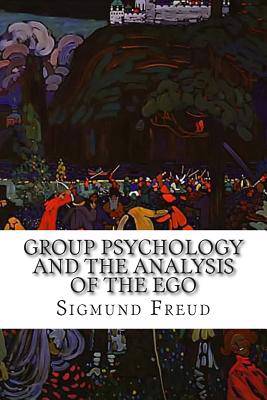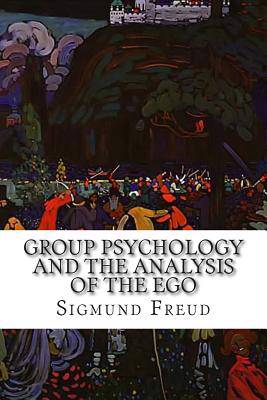
- Retrait gratuit dans votre magasin Club
- 7.000.000 titres dans notre catalogue
- Payer en toute sécurité
- Toujours un magasin près de chez vous
- Retrait gratuit dans votre magasin Club
- 7.000.0000 titres dans notre catalogue
- Payer en toute sécurité
- Toujours un magasin près de chez vous
12,45 €
+ 24 points
Format
Description
Group Psychology and the Analysis of the Ego is a work of Sigmund Freud from the year 1921. In this monograph, Freud describes psychological mechanisms at work within mass movements. A mass, according to Freud, is a "temporary entity, consisting of heterogeneous elements that have joined together for a moment." He refers heavily to the writings of sociologist and psychologist Gustave Le Bon (1841-1931), summarizing his work at the beginning of the book in the chapter Le Bons Schilderung der Massenseele ("Le Bon's description of the group mind"). Like Le Bon, Freud says that as part of the mass, the individual acquires a sense of infinite power which allows him to act on impulses that he would otherwise have to curb as an isolated individual. These feelings of power and security allow the individual not only to act as part of the mass, but also to feel safety in numbers. This is accompanied, however, by a loss of conscious personality and a tendency of the individual to be infected by any emotion within the mass, and to amplify the emotion, in turn, by "mutual induction". Overall, the mass is "impulsive, changeable, and irritable. It is controlled almost exclusively by the unconscious." Freud distinguishes between two types of masses. One is the short-lived kind, characterized by a rapidly transient interest, such as trends. The other kind consists of more permanent and enduring masses, which are highly organized, such as the Church or the military. "The masses of the former type, so to speak, ride on the latter, like the short but high waves on the long swell of the sea." However, the same basic mental processes operate in both kinds of masses.
Spécifications
Parties prenantes
- Auteur(s) :
- Traducteur(s):
- Editeur:
Contenu
- Nombre de pages :
- 106
- Langue:
- Anglais
Caractéristiques
- EAN:
- 9781514328446
- Date de parution :
- 12-06-15
- Format:
- Livre broché
- Format numérique:
- Trade paperback (VS)
- Dimensions :
- 152 mm x 229 mm
- Poids :
- 154 g

Les avis
Nous publions uniquement les avis qui respectent les conditions requises. Consultez nos conditions pour les avis.






